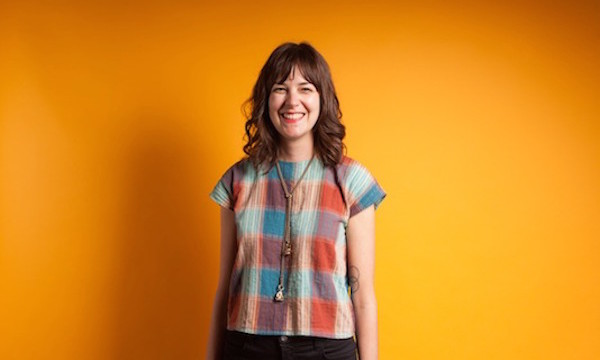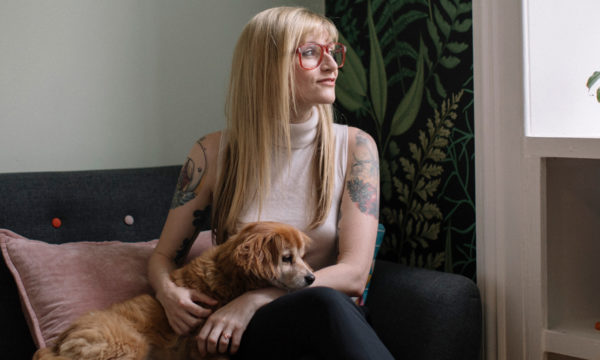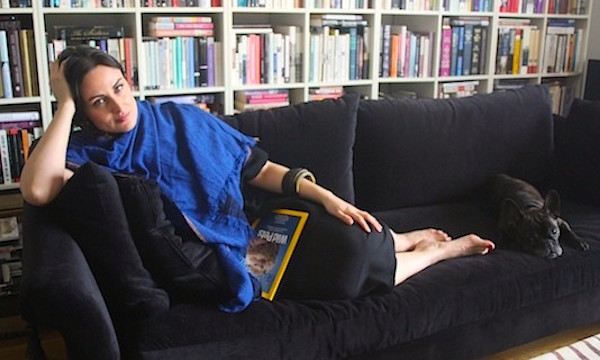Jessica Bennett on Saying No
September 01, 2017 | Filed in: Woman of the Week
Jessica Bennett kicked off her journalism career with what many young reporters would consider a dream job: a staff position at Newsweek. But a few years in, she felt stuck. Her male peers were getting promotions while her female colleagues were often passed over for the best assignments (even when they’d pitched the idea to begin with!). When she and two coworkers discovered that the magazine had been sued for gender discrimination by its female employees in 1970, they decided to observe the lawsuit’s 40th anniversary by researching the story—and comparing it to the present. They found that the gender ratio on the magazine’s masthead had barely shifted; same with its wage gap. Their findings became a major story, titled “Are We There Yet?” published in 2010; it also sowed the seeds for Bennett’s first book, Feminist Fight Club: An Office Survival Manual (For a Sexist Workplace), which came out last fall.
A collection of punchy, funny, and extremely useful essays about navigating work (and the world in general), Bennett’s book revolves around the formation of—yes—a Fight Club, or a group of women whom you can rely on for frank discussions and professional guidance (plus snacks and wine). Now a contributing writer at the New York Times, Bennett works from home in Brooklyn; we recently spent a morning with her (and her cockapoo Charlie) to talk clothes, mentorship, and the best way to say no.
I’VE ALWAYS IDENTIFIED as progressive. In 8th grade, my middle school boyfriend was suspended for wearing a skirt to school. It was a long, flowy skirt, worn over his jeans, and the administrators told him to remove it or be sent home. He refused and was suspended. Our idealistic young selves met with some of the older students at the local high school, and with their help we organized a walk-out called “Skirtfest.” We walked out (or more like ran—I distinctly remember this tall male administrator chasing us down the hall as we bolted for the doors), and then marched around the front driveway of the school (off property so they couldn’t force us back in) with picket signs, while wearing skirts. It was covered by the local paper and we were all given in-school suspension as a result. At the time I forged my parents’ signature so they wouldn’t know—but I’m pretty sure they would have actually been proud of us!

Jessica wears the Nila dress.
I GREW UP IN SEATTLE. It was during the grunge era, and there was a lot of alternative culture. While my parents didn’t really talk about feminism, there was no question in our household that women were equal to men. It was just a given.
THE ORIGINAL “FEMINIST FIGHT CLUB”—the one in the book—was a group of women, most of whom knew each other through friends and work, who were all frustrated in our respective fields. Most of us were creatives, producers, writers, editors, journalists, and comedians, and we were discouraged that we weren’t rising up as quickly as our male peers. We weren’t getting credit for our work, and in many cases, we knew we were making less money than men with our same job titles. We started meeting informally at one member’s parents’ apartment because we were all living in tiny studios with a lot of people, and we just talked about our experiences. It was nothing formal; we pretty much just went around the room and were like, “Hi, I’m Jess, I’m a journalist, I work here, here’s one goal that I have for the next five years and here is something that I’ve been experiencing at work.” One by one, the women all had very similar stories.
MUCH IN THE SAME WAY that women of my mother’s generation gathered in small groups to talk and called it “consciousness raising,” the women in the fight club were helping each other to realize that what we were experiencing was institutional and a pattern, by listening to each other. Especially in creative fields, it’s so easy to be like, “Maybe I’m just not as good a writer,” or “Maybe I didn’t negotiate that the right way,” or “Maybe it’s just my fault.” But when you hear ten other women say very similar things, it allows you to see the pattern. Basically, we would meet every few months, talk about our experiences, and we would try to advise each other on what to do. In some cases, that would be one member of the group emailing the rest of us when somebody did something awesome, because she was too humble to brag about it herself. Sometimes it would be checking on each other to be like, “Hey, did you ask for that raise? Do you need advice on how to do it?”
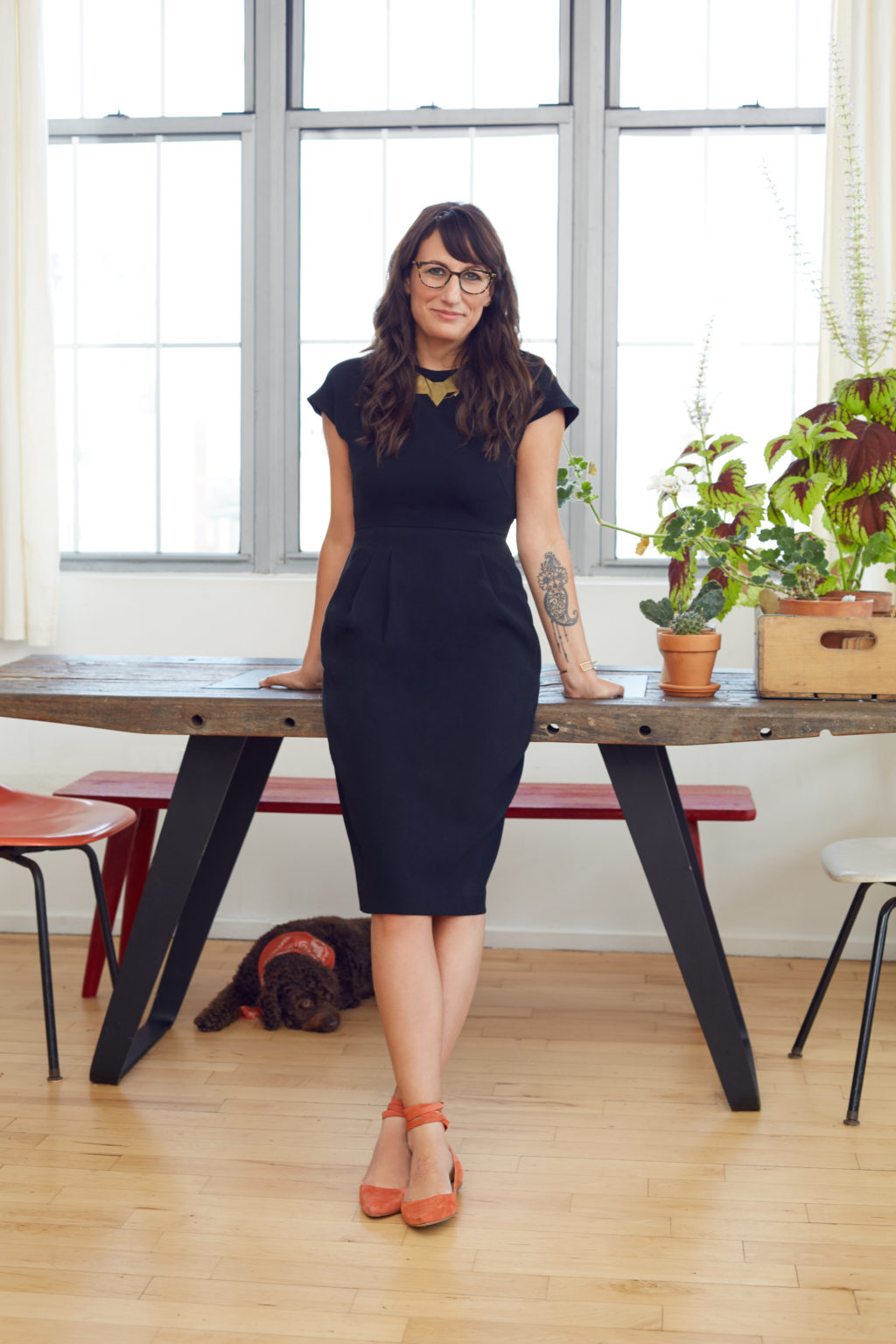
Jessica wears the Masha 2.0 dress.
OVER TIME, THE MEMBERS OF THE CLUB made a commitment to mentor younger women and lift each other up, but also to do it with other women we worked with. It’s been interesting to see how that has played out, and each of us has risen in our respective fields. We were all assistants or junior reporters, very low-level positions when we began, and now we’re directors and high-level journalists and VPs of marketing or whatever. What has remained is that very strong commitment to helping other women. We meet less regularly now, because everyone has babies and lives, but the group still is going strong.
I’VE HAD SOME AMAZING MENTORS, and I was lucky for that. A common thread among the women in the group, and I think this was even more pronounced for those working in TV, was that there really weren’t any mentors to speak of. A lot of them were in these all-male writers’ rooms, and most of the senior people were men and mentored the younger men who looked and acted like them. In some cases, there were senior women, but they’d had to fight so hard to get to where they were and didn’t necessarily want to help the other women out. They weren’t going to make it easy for the next generation. I don’t think that’s a rule, but we have tried really hard to not fall into that. We’re more powerful working together and we’ve tried to instill that in other women we mentor. That’s the mission. There’s a much stronger sense of female camaraderie today than there was even five or ten years ago when I was beginning my career. I remember being competitive with other women when I started out, and it took me years to understand why I felt that way. I realized, ‘Oh, this is the patriarchal culture that pits us against each other.’ There’s very much this feeling now among younger women that we’re in this together.
I DON’T THINK YOU NEED to have the perfect “mentor.” I think we can all create mentorship groups ourselves. We can have advisory boards of all sorts of different people, and it doesn’t have to be one person. Mentorship has taken off as a buzzword, and I talk to women all the time who are like, “How do I find a mentor? Will you be my mentor?” It doesn’t have to be that formal. My friends are all my mentors in some way. There’s actually a lot of power in peer mentorship. We should utilize that. My friend Amina calls it a “personal board of directors”—PBOD. And those people can be anyone who you think is smart and will give good advice. You can have a whole bunch of them.
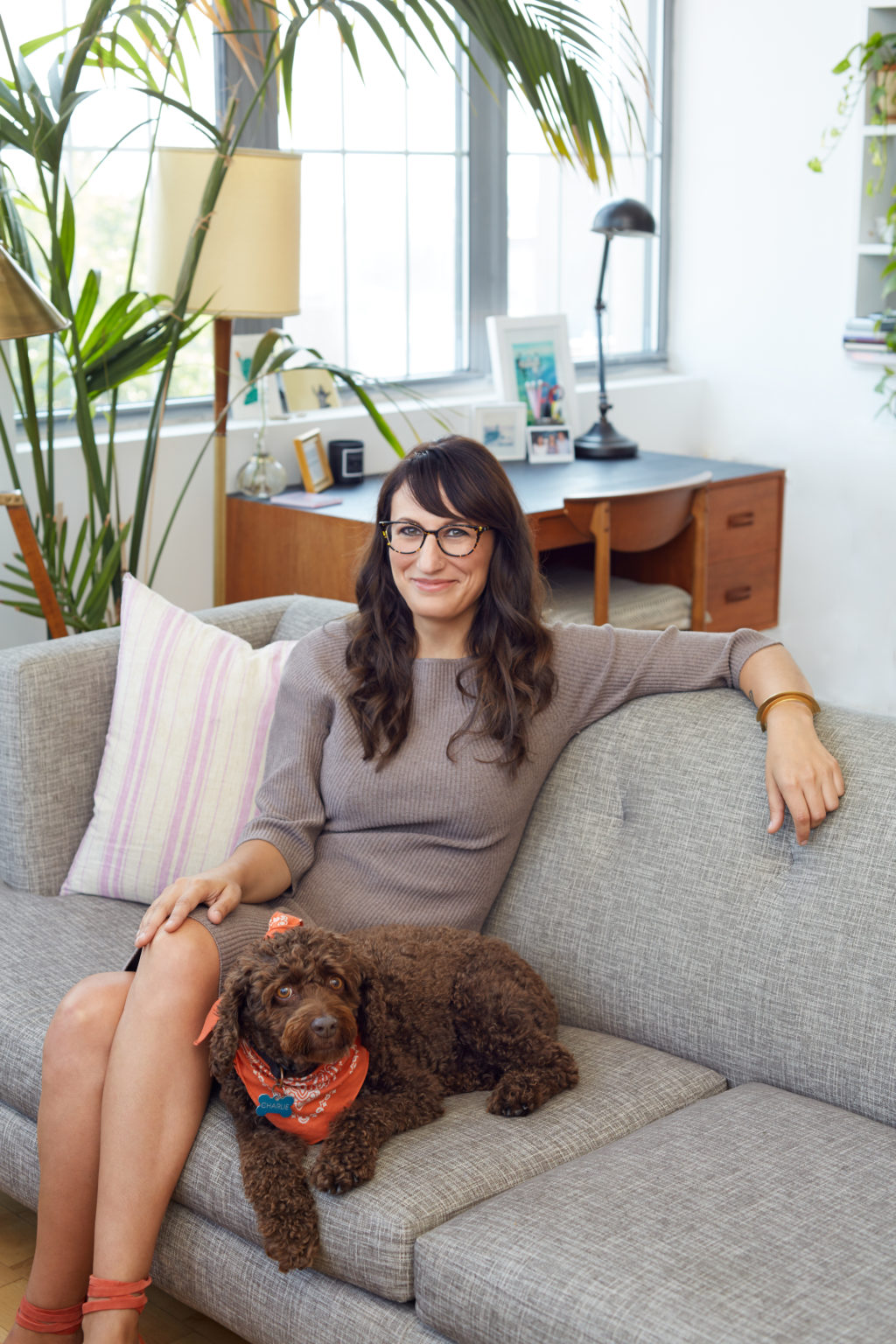
Jessica wears the Nila dress. Charlie wears a chic bandana.
A LOT OF WOMEN DO TELL ME their stories about sexual harassment. I listen, and it can be beneficial for people to feel heard, or feel part of a community that understands them, but it’s hard. I’m a journalist, not a therapist. If someone is talking about an area that’s been researched, I am happy to give advice based on it, but I don’t want to give advice if I don’t know the right answer. It’s tricky sometimes, because there’s no cut-and-dry solution. These stories also show that so many women are experiencing this every day. That’s why I always fall back on saying you should form a group of your own. It’s great to go to an event where there are 300 women in a room, but if you form a group of 12 women and just talk, there’s a real value in starting there.
I’VE BEEN A FREELANCER for four or five years now, and it took me three years to fully feel like I wasn’t losing my mind every day. I’m making a living at it, but it’s a constant hustle. The hardest thing about it is the lack of structure and the psychological warfare that happens in my brain every day because of it. There’s no average day, which makes it interesting, but also makes it challenging. Take today, for example: I’m in the middle of writing a piece that’s due next week for the New York Times. I’m making edits on a piece I just wrote for a magazine. I am helping to schedule some of my book events around the paperback release, which comes out in September, so I’m figuring out logistics for that. I have to schedule Instagram posts on social media. I’m working on podcasts for the book, which involves producers and recording. It’s very hard to keep it all straight in my head sometimes. Invoicing is a bitch—you’ll spend two hours writing out your expenses. It requires you to be impeccably organized, and even though I am impeccably organized, I still constantly feel like it’s chaos. I have a dog, Charlie, and he forces me to leave the house.
EVERY SIX MONTHS OR SO, I try to pare down the things that I’m doing, because my brain can’t think about that many things at once. At a certain point, I was doing a regular column for Time magazine and also had a contract with the New York Times, and I couldn’t manage all of it. I pared down, so now I have a contract with the Times and that’s the main place I write for, in addition to book stuff.
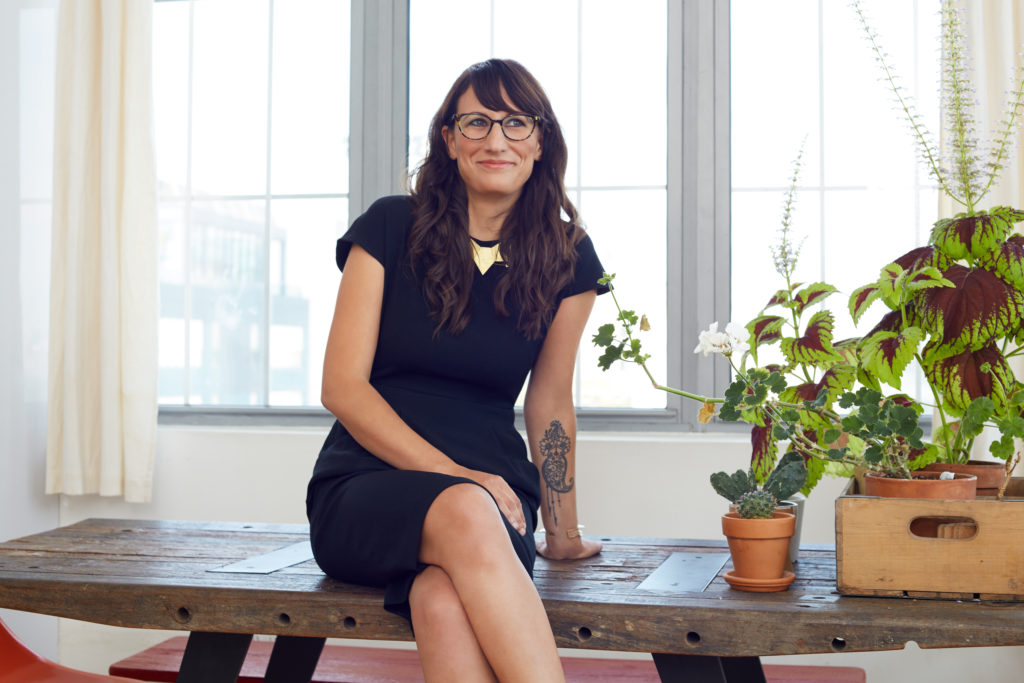
Jessica wears the Masha 2.0 dress.
HONESTLY, I DON’T DO A GOOD JOB of delineating between work time and non-work time. The thing about being a freelance journalist is that everything is work time. At the middle of the night when I get an idea, I pull out my phone and write it down or research it. When I’m out and about and something strikes me, or I witness something that I think would make a good story, I go up and talk to people about it. I don’t really have that differentiation between personal life and work. I don’t have a lot of balance. I don’t have kids, and I have a lot of respect for people who are able to have a family and be a freelancer. I purposefully schedule things for first thing in the morning so that I’ll have to wake up and be ready for them, and then I purposefully schedule things at the end of the day that force me to leave the house. I also will not do coffees during the day, or lunches. Everyone wants to do lunch. I’m like, “I’m a freelance writer; I can’t do lunch. That would interrupt my entire day.” The reality of being a writer is that sometimes you’re in a vibe, and you have to keep going. Other times you’re in a terrible position and you spend the entire day not writing at all.
I ACTUALLY WANT TO WRITE A PIECE about how no response is the new “no.” If I don’t respond to a request, that’s a no. I get dozens of PR pitches a day on the journalism side, and then I also get dozens of vague requests like, “Can I pick your brain? Let’s set up a meeting.” If I responded to all of those, I wouldn’t have time to do my job, and I would be broke. If it’s a student emailing me for advice, I respond, but otherwise, I usually don’t.
AT HOME, MY PREFERRED ATTIRE is pants-free. If I Skype with you, I’m probably not wearing pants, just FYI. But I love clothes, and I like fashion. Sometimes I get sad that I have no reason to get dressed. My style is casual, and I might throw on a blazer if an event is more formal. For the most part, I’m a jeans, flats, and blouse kind of gal.
Photographs by Maria Karas.







